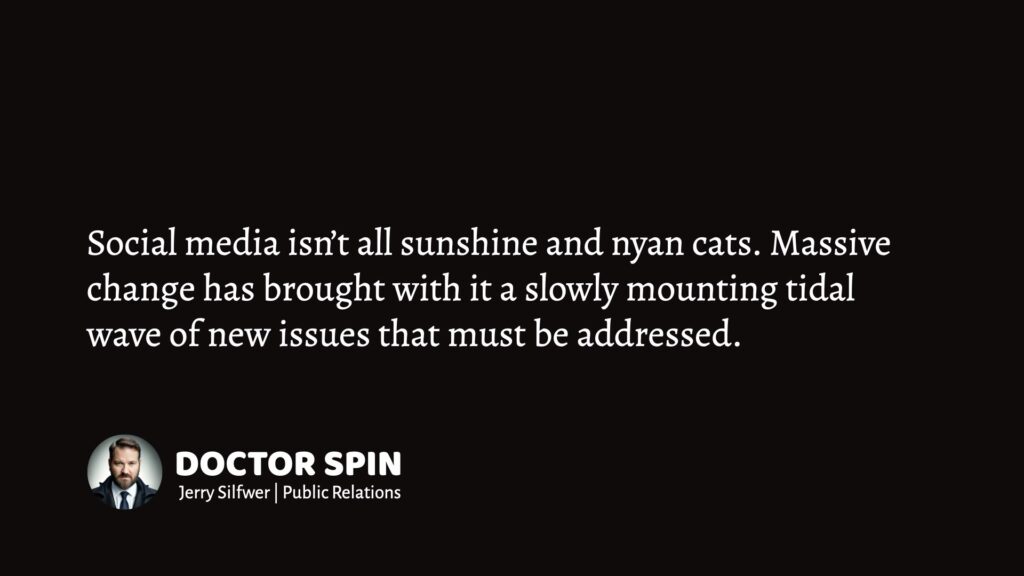The Cambridge Analytica scandal made history.
The scandal exposed how Cambridge Analytica, a political consulting firm, harvested data from 87 million Facebook users without consent to build psychological profiles for targeted political advertising.
Here we go:
The Cambridge Analytica Scandal
Cambridge Analytica was founded in 2013. Their business model was similar to Blue State Digital’s, focusing on data mining, brokerage, and analysis — and some consulting. 1This is similar to the social media intelligence agency Whispr Group, where I served as the COO from 2010 to 2013.
The Cambridge Analytica scandal began with Alexsander Kogan, a researcher at the University of Cambridge, who approached Facebook and asked to collect data for academic purposes.
For his study, Kogan launched a Facebook app called Your Digital Life. The app was used by 270,000 Americans permitted to pull data from their friends, which allowed the app to mine data from 87 million users. 2Cambridge Analytica. (2024, May 13). In Wikipedia. https://en.wikipedia.org/wiki/Cambridge_Analytica
Soon, this data ended up in Cambridge Analytica’s database.
Facebook, Targeted Ads, and Data Mining
It wasn’t only the data-mining companies that could sense potential. So did the social networking sites.
Segmenting people based on their communicative behaviour is more powerful than traditional demographic segmentation. 3Silfwer, J. (2015, June 11). The Publics in Public Relations. Doctor Spin | The PR Blog. https://doctorspin.net/publics-in-public-relations/
As Facebook went public in 2012, it took the lead and embarked on an aggressive journey to monetise social media usage.
In short, Facebook went hard for the advertising dollar. It’s not a modern monetisation model, but with so much user data, Facebook transformed the programmatic ad targeting industry.
With Facebook moving forward aggressively with loosely regulated data mining practices, Cambridge Analytica decided to take a shortcut.
Trump’s Presidential Bid in 2016
Among Cambridge Analytica’s founders and investors was the conservative pundit Steve Bannon. Bannon divested his holdings in the company in April 2017 when he was appointed White House Chief Strategist. Still, at that point, he had already been working as the CEO for Donald Trump’s presidential bid in August 2016.
And what software did Trump’s campaign use to persuade the American opinion to vote for Trump? Cambridge Analytica, of course.
With large data volumes on various online behaviours of US citizens, Cambridge Analytica profiled voters matching their psychographic behaviours.
To run a US presidential campaign on the back of illegally (and unethically) acquired data was, of course, a scandal in its own right.
The Power of Psychographic Analysis
Psychographic tools (such as Myers-Briggs and The Big Five Aspects Scale) allow people to be assigned to groups based on their past behaviour and predicted future activity.
This could have provided the Trump campaign answers on who to target and how to trigger them psychologically.
“Cambridge Analytica’s use of data analytics and microtargeting in political campaigns, combined with psychological tactics, helped secure Donald Trump’s victory in the 2016 U.S. Presidential Election.“
Source: Proceedings of the 1st Pedagogika International Conference on Educational Innovation 4Gatra, A. (2023). The Power of Data Analytics and Microtargeting in Political Campaigns, Cambridge Analytica Strategy, Donald Trump Victory the 2016 U.S. Presidential Election. Proceedings of … Continue reading
In the end, the whole scandal surrounding Cambridge Analytica brought the general public and politicians one step closer to understanding the immense power of big data.
The Cambridge Analytica Aftermath
Using a seemingly harmless personality quiz app, Cambridge Analytica collected users’ and friends’ data, exploiting Facebook’s lax privacy policies.
The firm, backed by Steve Bannon and funded by billionaire Robert Mercer, used this data to craft highly personalised, manipulative political ads, notably aiding Donald Trump’s 2016 campaign and the Brexit Leave campaign.
When whistleblower Christopher Wylie exposed these practices, global outrage over Big Tech’s role in election manipulation grew.
It led to Facebook CEO Mark Zuckerberg testifying before Congress, a $5 billion fine for Facebook, and a broader reckoning on data privacy and digital propaganda.
In the wake of the scandal, Cambridge Analytica closed its operations in 2018. Several executives moved to Emerdata, which is owned by the same parent company and resides in the same building in London.
Learn more: The Cambridge Analytica Scandal
The Techlash is Here
With a growing list of social media issues, older generations (mainly represented by influential legislators who remember a time before the Internet), are fighting back against companies like Meta, Alphabet, Amazon, Apple, Bytedance — to name a few.
Old-school politicians struggle to grasp social media. I can still hear the echo of Mark Zuckerberg’s words, “Senator, we run ads.”
The techlash is a war for our minds.
Techlash = the growing public animosity towards large Silicon Valley technology companies and their Chinese equivalents. 5Foroohar, R. (2018, December 16). Year in a Word: Techlash. Financial Times; Financial Times. https://www.ft.com/content/76578fba-fca1-11e8-ac00-57a2a826423e
The fight over Internet power will likely be the defining battle of the Electronic Age.
I think of Jan Stenbeck (1942 – 2002), the legendary Swedish entrepreneur. His business philosophy, as described by biography author Per Andersson, can be summed up: 6Jan Stenbeck. (2023, December 26). In Wikipedia. https://en.wikipedia.org/wiki/Jan_Stenbeck 7Per Andersson (journalist). (2024, January 10). In Wikipedia. https://sv.wikipedia.org/wiki/Per_Andersson_(journalist)
We can only expect a continued power struggle between the big tech companies on the one side — and legislators and the news media on the other.
Learn more: Techlash: The Great Digital Depression
List of Social Media Issues
Social media isn’t just nyan cats and double rainbows.
With massive change come new social media issues we must deal with.

Here are a few examples of social media issues:
Read also: The List of Social Media Issues

THANKS FOR READING.
Need PR help? Hire me here.

Annotations
| 1 | This is similar to the social media intelligence agency Whispr Group, where I served as the COO from 2010 to 2013. |
|---|---|
| 2 | Cambridge Analytica. (2024, May 13). In Wikipedia. https://en.wikipedia.org/wiki/Cambridge_Analytica |
| 3 | Silfwer, J. (2015, June 11). The Publics in Public Relations. Doctor Spin | The PR Blog. https://doctorspin.net/publics-in-public-relations/ |
| 4 | Gatra, A. (2023). The Power of Data Analytics and Microtargeting in Political Campaigns, Cambridge Analytica Strategy, Donald Trump Victory the 2016 U.S. Presidential Election. Proceedings of the 1st Pedagogika International Conference on Educational Innovation, PICEI 2022, 15 September 2022, Gorontalo, Indonesia. https://doi.org/10.4108/eai.15 – 9‑2022.2335937 |
| 5 | Foroohar, R. (2018, December 16). Year in a Word: Techlash. Financial Times; Financial Times. https://www.ft.com/content/76578fba-fca1-11e8-ac00-57a2a826423e |
| 6 | Jan Stenbeck. (2023, December 26). In Wikipedia. https://en.wikipedia.org/wiki/Jan_Stenbeck |
| 7 | Per Andersson (journalist). (2024, January 10). In Wikipedia. https://sv.wikipedia.org/wiki/Per_Andersson_(journalist) |



